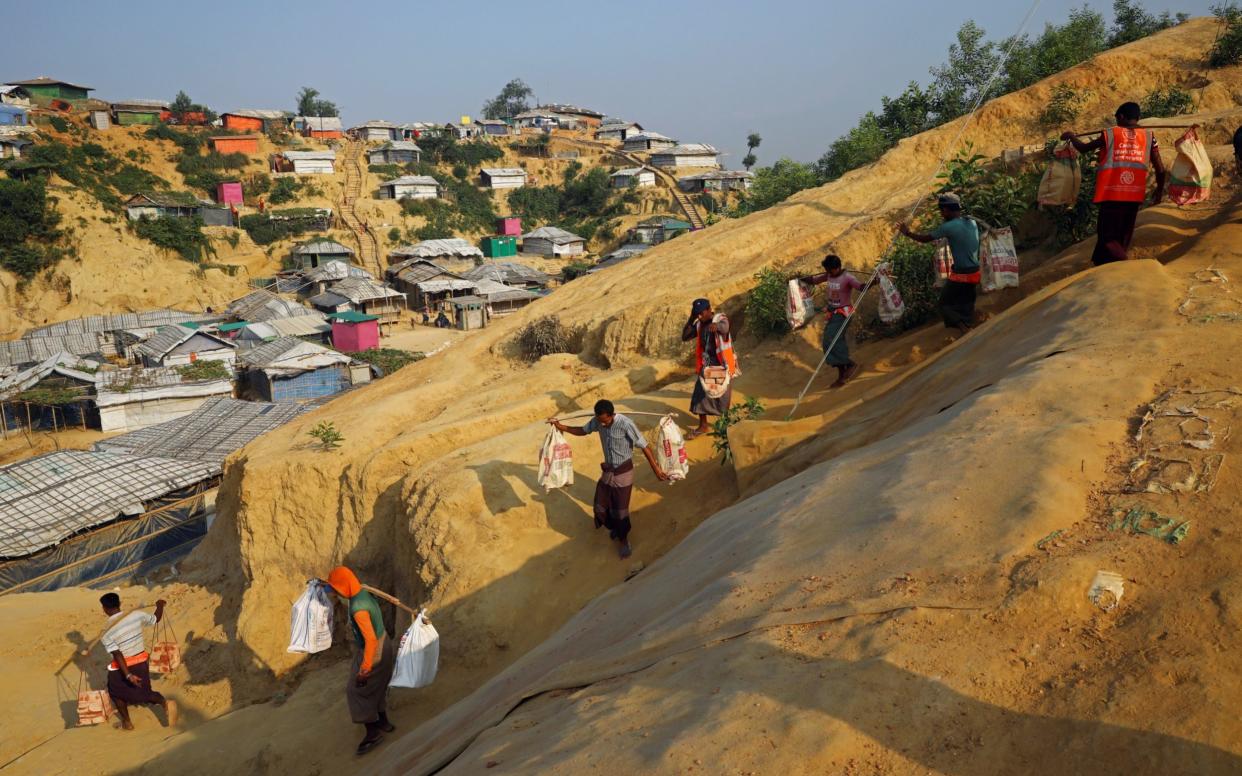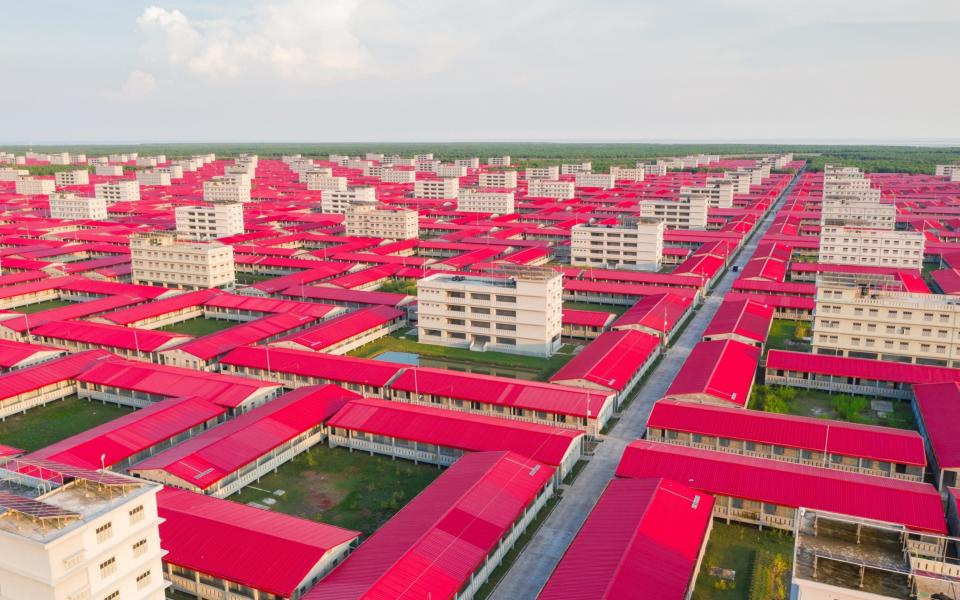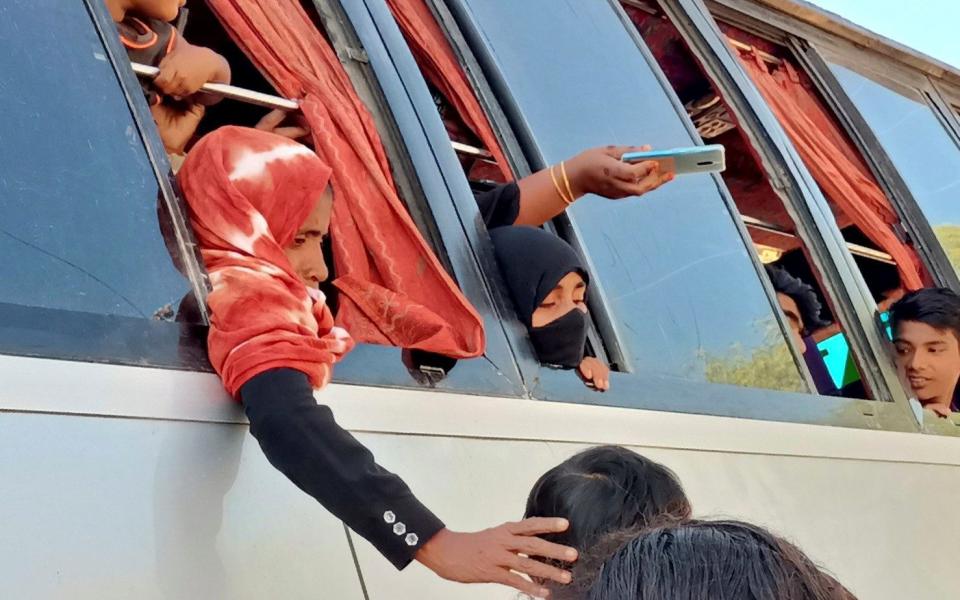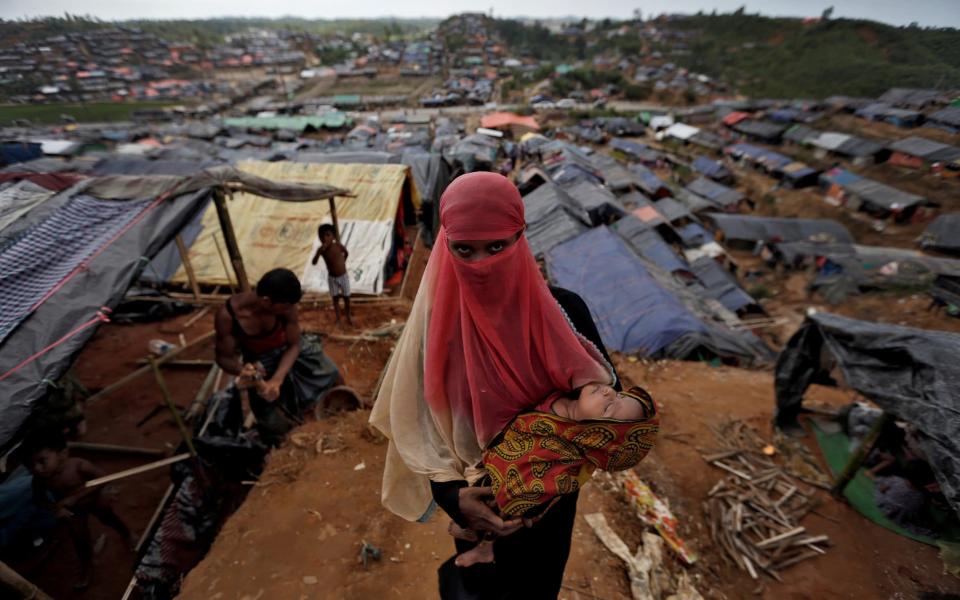Bangladesh starts relocating thousands of Rohingya refugees to a barren island described as a 'floating prison'

Bangladesh is enacting plans to relocate thousands of Rohingya refugees to a barren island in the Bay of Bengal, despite objections from the international community and human rights groups who have described it as a “floating prison.”
The Bangladeshi government has long pushed for up to 100,000 people to be shifted to settlements on the island from the cramped camps near the coastal town of Cox’s Bazar where more than 1 million people live in squalor.
However, humanitarian groups argue that the silt island, which only emerged from the sea 20 years ago and is prone to flooding and vulnerable to cyclones, is unsuitable for habitation.
The United Nations has so far been denied access to carry out a full safety assessment.
After lengthy delays, a government official confirmed to Reuters on Wednesday that “many families” had already been moved out of the camps. It is believed they are staying in transit centres to be prepped to be moved to Bhasan Char.

The UN issued a statement to say it was aware of the reports but had “not been involved in preparations for this movement or the identification of refugees and has limited information on the overall relocation exercise.”
It stressed that refugees should be allowed to make a “free and informed decision about relocating to Bhasan Char based upon relevant, accurate and updated information.”
It also called on the government to respect its commitment to ensuring any decision to move to the island was “voluntary” and to provide essential services on the island and freedom of movement to the mainland, which lies hours away by boat.
The Rohingya in Cox’s Bazar currently live in the world’s largest refugee camp after more than 730,000 fled Myanmar in 2017 to escape a brutal military-led crackdown that the UN has said was executed with genocidal intent. Myanmar denies genocide and says its forces were targeting Rohingya militants who attacked police posts.
There has been little progress in returning the Rohingya to their homes and the Bangladeshi government has indicated that hosting so many people on its territory is a rising burden on local resources.
Amnesty International is one of several human rights groups opposed to the relocation of refugees to Bhasan Char.
“The relocation of so many Rohingya refugees to a remote island, which is still off limits to everyone including rights groups and journalists without prior permission, poses grave concerns about independent human rights monitoring,” said Saad Hammadi, the organisation’s South Asia campaigner.

Amnesty said it had obtained a partial list of the Rohingya families that the government of Bangladesh identified for relocation to Bhashan Char.
In interviews, five family members, who represent 23 refugees on the list for relocation, claimed that they signed up to relocate out of compulsion rather than a choice.
Two Rohingya families said they were put on the list for relocation after they reported partial damage of their shelters to the majhi - a Rohingya community leader, selected by the Bangladeshi authorities in most of the camps.
“I requested many times to the NGOs and CIC (camp authority) for support to fix my shelter. We are still having difficulty staying in the shelter. They are not helping me to relocate within the camp or to other camps,” said the head of one Rohingya family.
A briefing note by an international humanitarian organisation seen by Reuters said hundreds of refugees identified by officials as willing to go to the island were taken to a transit centre on Wednesday, with some offered incentives including cash payments.

Mohammed Shamsud Douza, the deputy Bangladesh government official in charge of refugees, said housing had been built for 100,000 people and authorities want to relocate them during the November to April dry season when the sea is calm.
“We will not force anyone to go there,” he told the newswire by phone, but did not comment on whether incentives had been offered.
More than 300 refugees were brought to the island earlier this year after an attempt to flee Bangladesh for Malaysia by boat failed and they were stranded at sea for months.
In October, Human Rights Watch reported allegations that Bangladeshi naval officers had beaten some of the Rohingya after they went on hunger strike to protest their detention and separation from families onshore.
Fortify Rights, an NGO helping the Rohingya, said it estimated thousands were on the latest relocation list.
One refugee told them he put his name forward because “Our Majhi said that if the people are to repatriate to Myanmar or resettle to another country, then the people from Bhasan Char will be prioritised.”
“We’re already seeing worrying signs of coercion,” said Ismail Wolff, the group’s regional director. “If the authorities are manufacturing consent through deprivations and false promises, then we’re in the territory of coercive transfers.”

